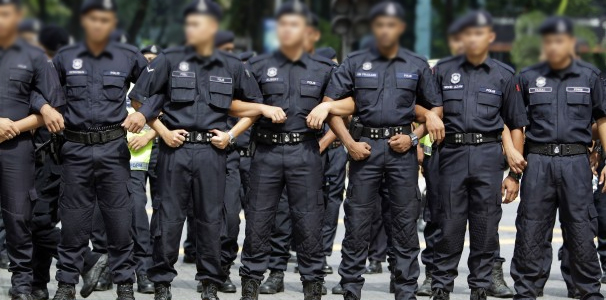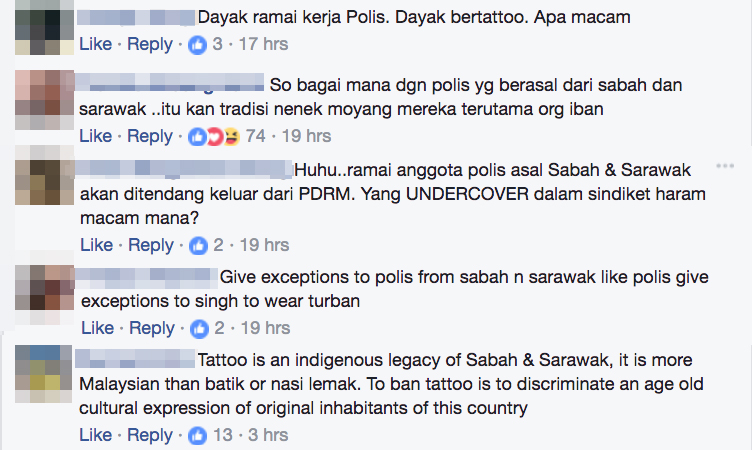PDRM: Police Officers Are Not Allowed To Have Tattoos
Bukit Aman had issued a notice on the ban on 21 June.
Police officers in Malaysia are not allowed to have tattoos, according to a notice that was issued by Bukit Aman recently
Oriental Daily reported yesterday, 12 July, that Ipoh deputy OCPD Supt Abdul Rani Alias said the federal police headquarters at Bukit Aman had issued a notice on 21 June that police officers are not allowed to have tattoos.
Speaking at the district police monthly assembly yesterday morning, he said that all police officers have been ordered to follow the new directive.
According to Abdul Rani, the authorities will not hesitate to take stern action against those who violate and do not comply with the regulation.
Police officers were reportedly given the directive because tattoos have traditionally been used to show gang membership
Abdul Rani pointed out that tattoos have become a trend, and the public knows tattoos are generally associated with cultures and symbols related to gangsterism.
He reportedly said that police officers with tattoos are in conflict with the image of the police force and will cause "defect" on the uniformity of the organised body.
Following the directive, netizens have questioned how this guideline would affect police officers from Sabah and Sarawak, where getting tattoos is part of the culture of the local communities there
A former Police Volunteer Reserve Corp (PVR) member has also raised his concerns about the recent policy
In a report by Free Malaysia Today, JK Associates principal consultant Khen Han Ming, has questioned if exceptions would be made for those who had tattoos for religious reasons and urged the authorities to make clarifications on the matter as soon as possible.
It was learned that Khen has tattoos as he was once a Buddhist monk. Citing his own experience as an example, he said that he did not encounter any problems previously when he went through the selection process for the PVR, which is said to be identical to the regular selection process. He served as a PVR member for two years, from 2014 until 2016.
"Supt Rani's statement is a little too general and could create speculation and encourage discrimination," he was quoted as saying.
"As far as I know, the police – just like any uniformed service – allow tattoos as long as they are not visible on bare skin and is covered while in uniform. Also, these tattoos must not identify gang or criminal organisation affiliations."
The issue of police officers with tattoos was brought up during a talk-cum-recruitment exercise in Miri back in 2014
Datuk Gan Tian Kee, who was the Miri police chief then, said that exceptions can be made if tattoos were traditional or religious ones.
"Religious tattoos are meant to protect the individual and it is significant for them. PDRM (police) will allow them as long it has something to do with religion. But they must not be heavily tattooed to safeguard and to keep the good and clean image of the force."
"Tattoos that are not allowed are those related to gangsterism, sadistic or with obscene motive," Gan said in a report by Borneo Post.
Meanwhile, the subject of police officers who had inked their bodies is also a controversy in the UK
In 2012, the Metropolitan Police Service issued a blanket ban on police officers from having tattoos visible on their hands or face.
"All visible tattoos damage the professional image of the Metropolitan Police Service. This corporate announcement discusses a specific requirement from the MPS Dress Code Policy in relation to the display of tattoos," it said in a statement, as reported by BBC.
Since then, there have been calls for the Metropolitan Police Service to lift the ban. Last August, the Police Federation of England and Wales said that the current policy may be causing police forces to miss out on recruiting good candidates.

